Tim Tetrick is accustomed to having good harness racing seasons, but 2019 is shaping up to be one of his most memorable. Tetrick is the regular driver of harness racing's No. 1-ranked horse, the New Zealand-bred pacing mare Shartin, and earlier this year reached career win 11,000. And last month it was announced that Tetrick is one of four people on the ballot for the Hall of Fame. The results of the voting will be announced later this year.
On top of that, Tetrick entered Friday leading the sport in earnings by a wide margin. His $9.12 million in purses were $2.8 million ahead of second-place Jason Bartlett. In addition, Tetrick had won 505 races, second to only Aaron Merriman's 579.
Tetrick is on pace for more than 800 wins and more than $14 million in earnings, which are levels only one driver in history has surpassed in the same year. The driver? Tetrick, who accomplished it first in 2007 when he set the record for wins with 1,189 and earnings with $18.3 million. The following year he again surpassed the 800-victory and $14-million plateaus, winning 902 races and $19.7 million. Those earnings remain the sport's record.
For his career, Tetrick ranks fourth all time in purses with $211 million and ninth in wins with 11,181. He has been named Driver of the Year by the U.S. Harness Writers Association on four occasions.
Tetrick recently took time to speak with Ken Weingartner, the U.S. Trotting Association's media relations manager, about his career, the Hall of Fame, and Shartin, who has won 17 of her past 18 races and competes in Sunday's $137,000 Artiscape at Tioga Downs. The 6-year-old mare has won 12 of 13 races this year and earned $742,927. Last year, she became the first pacing mare in history to earn $1 million in a season, reaching $1.05 million thanks to 19 victories in 24 starts.
KW: You're having such a great year, on pace for over 800 wins and over $14 million, what have been the keys to success?
TT: Just getting the right horses, that's all. Some years you just don't have the power. This year, I've had good stables and good horses to drive. The right horses get between my arch.
KW: When you get on a roll, does it feel different?
TT: It's definitely a lot easier to get out of bed and go to work when you're winning four, five, six (races), that's for sure. When you have a bad few days or couple of weeks, you start thinking you can't do it anymore, you get down on yourself. I try not to think about it. I enjoy going to work.
KW: Is that the key, trying to enjoy it every day?
TT: Exactly. If you over-think it, you're going to mess up. You can't over-think it. The things that can bother you, you just can't let them bother you. I tried to learn that a long time ago, but it's hard. You've got to be able to turn the page, no matter what happens. You've just got to forget about it.
KW: What have been the highlights for you this year? You're getting to drive Shartin, won your 11,000th race …
TT: All of the above. (And) getting nominated for the Hall of Fame, it's a dream come true. Getting to drive great horses, like Shartin. Getting to compete at a very high level. It's pretty awesome.
KW: What does it mean to you to be nominated for the Hall of Fame?
TT: I never thought about it when I was younger. Over the last four or five years, I've had such great success and the numbers are good, you kind of start looking ahead. You see some of your peers that you still work with get nominated and it's pretty cool to see them go in and what it means to them. It's a Hall of Fame for a reason. They only take the best of the best. To be even considered, it's a great honor. Hopefully it will come true.
KW: Reaching 11,000 wins, do those milestones mean a lot to you?
TT: For sure. I know records are meant to be broken, and stuff like that, but that's a lot of wins. Most people don't get 11,000 drives in their careers and I've been able to go to the winner's circle over 11,000 times. My biggest thing, though, is the money. I've gotten to win over $200 million and there are only three guys ahead of me. And I'm only 37. But the wins are awesome. I'm racing against the top 10 guys every day, so to have that many wins is awesome.
KW: Do you get extra motivation from that, knowing the competition you're facing?
TT: I always want to try to beat the best. Not only are they very good at what they do, they're very safe to drive with, and they're smart. It doesn't make your job easier, but it does make your job easier racing against the best guys in the world.
KW: How have you seen yourself grow over the years and what are you most proud of?
TT: I still learn things every day. I heard (retired driver) Cat Manzi say one time that he learned a lot from watching the younger guys when they came up. You never stop learning, the way you sit in the bike or the way you handle a horse. I like getting a young horse and being able to come off the track and tell a trainer something that I think can make the horse better. And they come back the next week and tell you, man, that really helped. Equipment changes, or whatever it is. That is a lot of fun to me.
KW: It's more than just being on the track with a horse for two minutes.
TT: Exactly. I know I'm a catch driver, but I still think of myself as a horseman. I always put the care of the horse first and try to do what's best for the horse and still make them go as fast as I can. And make a lot of money. (Laughs.)
KW: I wanted to talk about Shartin. Jim (trainer Jim King Jr.) and everybody around the horse say what a great job you've done helping her along, going back to the beginning last year. What has it been like to see her development and how do you view your roll in it?
TT: It's awesome to watch her grow and see what she's turned into. From the first time I saw her, I could never dream she could do what she's done. She's exceeded my expectations, for sure. I think Jimmy and (his wife) Jo Ann are giving me too much credit. Good horses make good drivers look better. She's been a work in progress, a little too eager at times, but Jimmy and me work together. It's different when you race than when you train them. I hear all the time, "They didn't do that at home." Well at home you don't have a starting gate and grandstand and people cheering at you. And there are nine other drivers that are trying to beat you. On the racetrack, she's different. She wants to win and she's very eager about it sometimes. They've done a great job keeping her fit. She actually loves traveling, going places; you see her just get her game face on.
KW: With a horse that can be a little overanxious, what do you do to try to keep them relaxed and focused?
TT: There are different ways. You try to keep her by herself because when she gets around other horses, she wants to go after them almost. When a horse gets close to her, even in the post parade, she thinks it's race time. If you keep her by herself, she takes care of herself after that. She's a beast.
KW: That type of desire, is it something you can sense in a horse?
TT: In her you can. You can feel it in the lines. When you're coasting on the lead by yourself, she's actually really calm and relaxed. But she'll see other horses coming before I do. She watches. She won't let a horse pass her. She wants to fight.
KW: Has she reached her full potential or is there more there?
TT: There's more there. I've never hit the bottom yet. The other day, that wasn't all she had, I know that. Hopefully she doesn't ever have to go faster than that. She's a horse that might last three more years if we take care of her and pick our spots. Why show off if you can make a million dollars a year with a horse? As long as we win. It doesn't pay more if you win by four or five lengths. I just let her do what she wants to do and win by the least amount we can.
KW: How meaningful was it to reach a million dollars with her?
TT: The first (time) was unheard of and she might do it two years in a row. It's just awesome. She's well on her way. She's ahead of her pace from last year and I think she's stronger and more mentally stable than she was at this time last year. She just amazes me every day.
by Ken Weingartner, for the USTA

 USA
USA Canada
Canada Australia
Australia New Zealand
New Zealand Europe
Europe UK / IRE
UK / IRE


